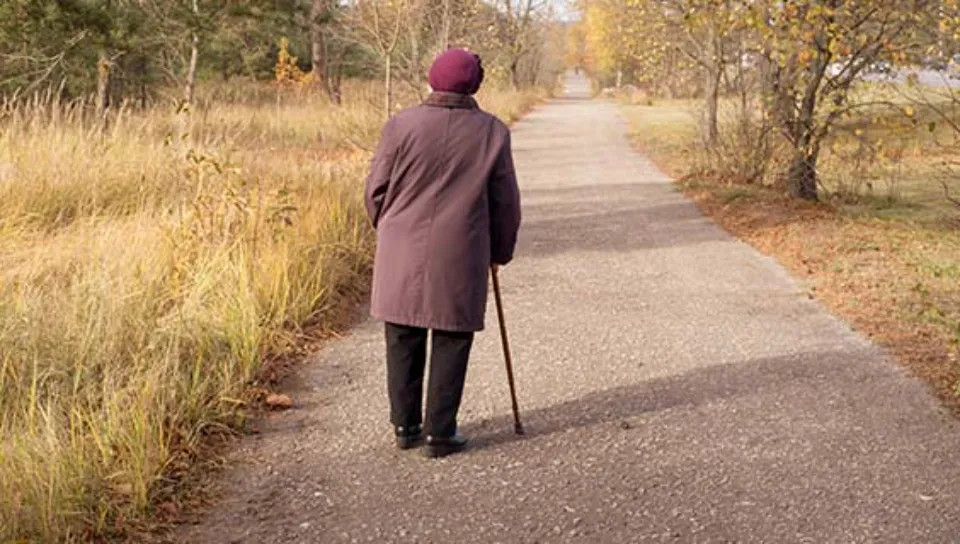Are you someone’s caregiver for a dementia or Alzheimer’s patient? Do they tend to want to stray?
Patients with Alzheimer‘s disease or other types of dementia frequently exhibit the behavior of dementia wandering. In addition, the person is at a high risk of wandering off or getting lost once they start to exhibit wandering behaviors.
Both the individual and the caregivers may become very distressed by this behavior. Learn why seniors wander and what you should do.
Read more: Dementia Feeling Cold All the Time: How to Deal? – Elder VIP
The 7 Stages of Dementia
Stage 1: No Impairment
According to recent research, AD starts years, if not decades, before any symptoms become apparent. As we march into the future, looking for a cure, genetic research and much more advanced medical science will undoubtedly make this an important and focused area of study. But for the time being, the majority of us will never be able to tell if we are still in the early stages of the illness. Unfortunately, doctors can only diagnose probable AD once signs and symptoms start to appear. In fact, only after examining the brain tissue after death can a conclusive diagnosis be made.
Stage 2: Very Mild Cognitive Decline
This stage could represent a typical aging process or the very first indications of Alzheimer’s disease. The affected person at this point, as well as possibly their close family and friends, may have a sneaking suspicion that something is wrong. Even an Alzheimer’s patient at this stage, though, is typically able to conceal or rationalize any minor impairment.
Stage 3: Mild Cognitive Decline
This stage of the illness is challenging. According to the Alzheimer’s Association, some people with early-stage AD can be diagnosed with symptoms that are recognisable to close family and friends. However, this is not always the case. One of these symptoms is difficulty remembering words and names, particularly those of new acquaintances.
Weak signs of a deeper underlying problem include unusual performance problems at work or in social situations, decreased retention of recently read material, losing or misplacing possessions, and a decline in planning and organizational skills. A doctor’s appointment is necessary if any, all, or any combination of these symptoms appear at the same time.

Stage 4: Moderate Cognitive Decline
At this stage of the disease’s progression, it is thought to be mild or in the early stages, and a thorough physical examination can now detect the presence of the illness’s distinct symptoms. This includes a clear decline in awareness of recent events, both personally and those affecting the neighborhood and the rest of the world.
It would also have an impact on a person’s ability to carry out regular planning and organizational tasks, like balancing a checkbook or organizing a group dinner.
Decreases in performance on standardized mental status tests, such as the Mini-Mental State Exam and the Mini-Cog, would also be noticeable. Remember that some patients can still pretend to be functioning normally in stressful circumstances like doctor’s appointments. This frustrating phenomenon is known in the dementia care community as “showtiming,” and it can hinder a timely diagnosis.
Stage 5: Moderately Severe Cognitive Decline
This stage of AD, which is also referred to as moderate or mid-stage AD, is when symptoms start to show up clearly and start to negatively impact daily functioning. Most patients, as well as their close relatives, friends, and employers, become increasingly frustrated.
Those who are in this stage are painfully aware that they are not themselves, and this naturally enrages and perhaps further confuses them. They frequently vent their frustration on the family members or grown children with whom they feel the safest. Naturally, it is these very people who volunteer their assistance and take on the demanding position of caregiver.
Stage 6: Severe Cognitive Decline
The middle stage, which is moderately severe, is where forgetfulness becomes the least troublesome symptom. Significant personality changes and problematic dementia-related behaviors start to take the lead instead. That sweet person you once knew might at times suddenly turn combative, explosive, and even violent. The Alzheimer’s Association says that at this stage, people lose “most awareness of recent experiences… as well as their surroundings.”
Stage 7: Very Severe Cognitive Decline
It’s sad to see a patient’s speech become unrecognizable during this severe late stage of AD, as well as the onset of urinary and bowel incontinence, the inability to eat without assistance, and dysphagia, a condition that can affect swallowing.
When it comes to walking, sitting, standing up, and transfers, seniors in the advanced stage typically require support and assistance. At this point, it is likely that the patient is very unsteady on their feet if they are able to stand up. Falls can be a dangerous complication, so they should be closely watched. As dementia patient progresses, their needs increase to the point where it is imperative for caregivers to seek support, whether it be in the form of in-home care, care in a memory care facility, or even hospice care.
Causes & Signs of Dementia Wandering
While the precise reasons for wandering behavior are not yet fully understood, it can happen when someone is looking for something or attempting to return to a familiar location, such as a job or favorite vacation spot. Additionally, when someone is restless or agitated, they may just wander off or leave.
Common reasons people wander are:
- Unable to retain instructions to wait, not leave, stay in the car, stay in the house
- Agitation, or possible onset of delirium
- A sudden new routine or situation
- Response to something they hear or see
- Looking for something related to their past
- Want to “go home” even though they are home
They may say things like:
- I want to go home
- I need to go to work
- I have to go shopping
- They might no longer recognize their home.
- They require prompting to remember where their bathroom or bedroom is.
- They might pace more and act more restless.
- When they are outside, they fail to remember to return inside the house.
- Their inability to focus causes them to lose track of their tasks and their location.

What to Do If Your Loved One Wanders Away?
Prevention
There are steps that caregivers can take to help prevent wandering, or make it difficult for the person to wander away and include such things as:
- Creating a secure environment by…
- Locks on doors
- Door or window alarms
- Securing car keys
- Childproof door knob covers
- Not leaving the person alone at home or in a car
- Obtain a location-tracking device for the person
- Managing restless behavior with…
- Activities to occupy the person’s time
- Regular physical exercise
- Ensuring adequate sleep
- Reporting behavior changes or increased confusion to the person’s doctor
After Wandering
There is not much time left. It is crucial not to postpone taking action. Several immediate steps you can take are:
- Inform the police at once. Call 911.
- Create a phone tree to alert friends and family and a safety plan.
- To raise awareness of your loved one’s condition and tendencies, inform nearby businesses and neighbors before he or she wanders off.
- Whenever possible, use social media.
- Silver Alerts are issued in some states.
- The Missing and Endangered Person Advisory System is run by the State Police in Pennsylvania. As soon as you can, get in touch with the state police barracks nearest you.
Conclusion
When a loved one goes missing, the first thing you should do is call 911; they can locate your loved one the quickest. Daily precautions must also be taken, as they are extremely important.



